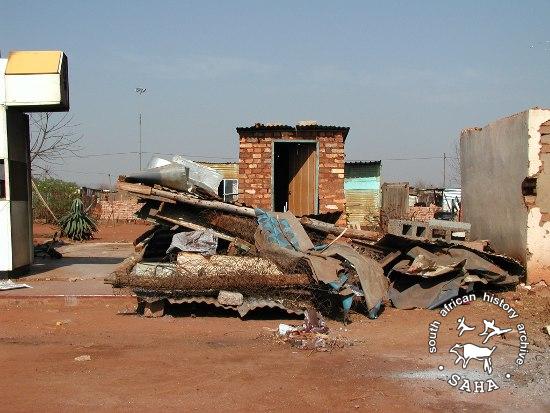The Promotion of Access to Information Act, 2000 (PAIA) provides only 30 days for requestees to respond to requests, yet Transnet only provided its response 593 days after SAHA sumbitted PAIA requests to it. Dividing that by 30 days in an average month, we get 19 months before SAHA received a response from Transnet.

In January 2014 SAHA submitted a number of PAIA requests to Transnet on behalf of former Transnet employees facing eviction from their homes. It was hoped that these records would enable them to secure their housing rights, stemming from a housing scheme they entered into while employed at Transnet.
Instead the result has been a long struggle, fighting back and forth over section 18 of PAIA, which provides that 'if the request is made on behalf of a person, [the requester must] submit proof of the capacity in which the requester is making the request, to the reasonable satisfaction of the information officer'. Although getting information for the former employees was the issue at hand, Transnet decided to fixate on the "reasonable satisfaction of the information officer" requirement, demanding that SAHA prove the capacity in which it makes these requests. SAHA provided, where this was practically possible, some of this "reasonable information" documentation, even though providing such documentation is not expressly required by PAIA and could never, in light of the objects of the act be seen as "reasonable". This documentation included certified ID copies and affidavits from the requesters proving the capacity in which SAHA was making the request. SAHA's own authorisation and consent forms were rejected by Transnet. Furthermore Transnet demanded proof that SAHA was a bona fide non-profit organisation.
It was only after six months that Transnet gave SAHA any indication that it was actually unlikely that those records still existed, which after such a long struggle raised questions and concerns. Not only did it raise concerns about their record keeping practices and compliance with PAIA, but also about the truth of the claim that it is unlikely that these records still exist.
Meanwhile Mr. Tlale, one of the people on whose behalf SAHA was making the request, passed away, now this struggle for information about the Transnet housing scheme is left in the hands of his widow, Mrs Tlale, and their children.
It is not only Mrs Tlale who is affected by this problem, but also a number of elderly people who are former Transnet employees. One elderly lady told SAHA that she has been evicted and now all her valuables have either been stolen or damaged through the process of moving from place to place, without a secure place to stay. Another 70 year old man, who has been staying in the same house since 1992, continues, 20 years on, to make payments for the house, but without any records showing the capital amount owed or what was paid off during his employment with Transnet. He complains that he is having to spend his golden years running around trying to find information about this housing scheme.
Most of these people are elderly and suffering because of a lack of information, they need information about how their debt ended up in the hands of a bank, why they were not informed of this transfer of debt and how much of their debt was paid off through deductions from their salaries. Getting this information could help some of them secure their right to adequate housing, will open up a way forward to solving the issue of possible eviction for others and could help still more people, already evicted, get their houses back.
Unfortunately however, this is not going to happen since Transnet released a Section 23 (PAIA) affidavit stating that they could not find the records and that it was unlikely that the records still existed. SAHA at this stage can do nothing more as it cannot prove that it is probable that the records actually did or still do exist - the 593 days-late response is only reason for suspicion.
You can read more on other similar requests on the Freedom of Information Programme website (Request Tracker).





